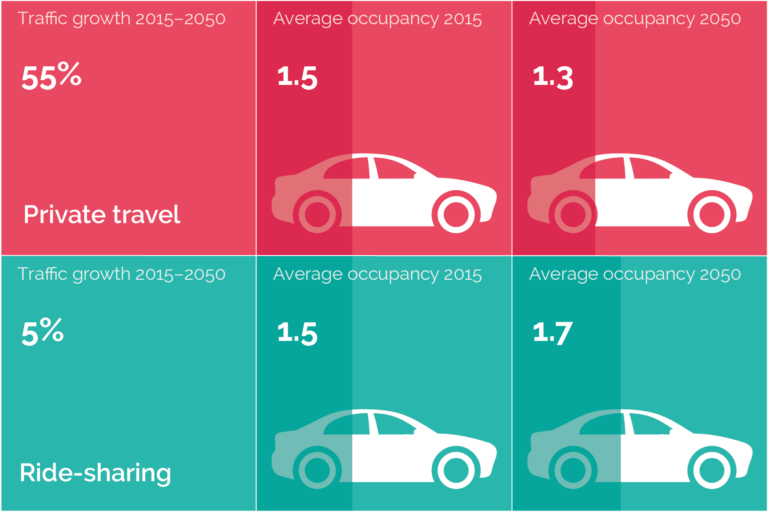
Today at the Smart Transport Conference in Birmingham, DecarboN8 lead, Greg Marsden, launched the CREDS (Commission on Travel Demand) Shared Mobility Inquiry report.
The report makes 20 recommendations, outlining how the UK could use shared mobility to help meet our Net Zero by 2050 commitment.
By ‘shared mobility’ the report refers to:
Shared ownership: where use of a vehicle is shared between people, i.e. ‘car clubs’, car share schemes, fractional ownership, and bike share schemes.
Shared at the point of use: pay-per-trip ride sharing (or trip sharing) like airport shuttles. In the future, this may include ‘robot taxis’ where self-driving vehicles pick up and drop off different people as needed.
The report notes that shared mobility is a relatively cheap and easy way to cut emissions from transport, by better utilising the technology and infrastructure we already have:
“More intensive use of fewer vehicles already offers a cost-effective, socially progressive and implementable set of options to cut carbon.”
The report also points out the dangers of not moving towards increased sharing, noting that even if all vehicles were electric by 2050, sustaining the current rate of growth in individual car use would be incredibly resource-intensive.
Business as usual projection of growth in car ownership

Of particular interest to DecarboN8 is the report’s emphasis on finding different solutions for the edges of towns and rural areas. These places often have fewer alternatives than cities and so will need different ways to access cars in a more shared future. The report also recommends shared travel hubs alongside on busy motorway corridors which could apply to the North.
Challenging those who think sharing would be too difficult a policy to sell, the report asks:
“If not sharing, then what? What policies will reduce the energy requirements of building the vehicle fleet, even when it is electric? Which policies will enable both short-term and long-term carbon pathway compliant transport policy? What makes other policy options more palatable than a major focus on increased sharing?”
The inquiry found that shared mobility could contribute to rapidly decarbonising transport as part of a wider mix of integrated transport options, and that it would offer additional benefits in terms of congestion, financial inclusion, and social integration.
Visit CREDS to see the full report, recommendations and a graphic summarising the main messages.
